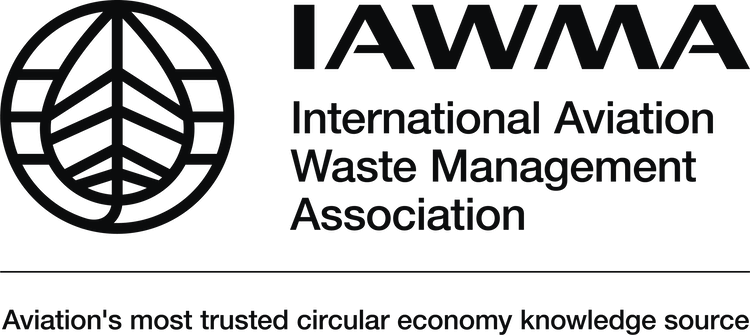Guest Column: The question is waste
By Anne De Hauw, Founder of IN Air Travel Experience, Member of Board of Advisors at IAWMA, and Partner at The Hayward Partnership
This is a special feature from PAX International's September 2021 WTCE Virtual digital edition, on page 32.

Anne De Hauw, Founder of IN Air Travel Experience, Member of Board of Advisors at IAWMA, and Partner at The Hayward Partnership
Environmental sustainability is high on the agenda of airlines in the post-pandemic era. Despite the unparalleled crisis the pandemic has caused, the industry has reconfirmed its commitment to the environment. Combating climate change remains a top priority: cutting CO2 emissions in half by 2050 through innovative technologies, sustainable aviation fuel and improved operations and infrastructure. But, also on the agenda is noise reduction and managing waste responsibly.
From a worldwide economic perspective, (food) waste is a global issue recognized by the United Nations Sustainable Development Goals (UN SDGs). The UN would like to see global food waste per head in cut half by 2030, a great opportunity for airlines.
And last but not least, from a passenger perspective, the pandemic has accelerated environmental consciousness and passengers expect a positive response when it comes to climate change.
The waste hierarchy
With the increasing public awareness of the harmful effects of our “throwaway culture,” and that our planet’s valuable resources are not unlimited, a shift towards a circular economy is necessary even if it’s a long-term ambition. In other words: making products last longer, and recovering materials or other benefits from them when they can’t be fixed.
However, it is paramount to evaluate waste management initiatives objectively: prevention comes before minimization, re-using, recycling and energy recovery. The last and final option is disposal (landfill and incineration).
First step: reducing cabin waste
The first step airlines should take is to move to an on-demand consumption model (pre-order), enabled by digitizing the end-to-end experience front- and back-end. This disruptive business model relies on airlines to only load onboard the products that will actually be consumed by the passengers, resulting in significant waste reduction.
Next, industry stakeholders (airlines, airports and their service providers) should collaborate and work with regulators to simplify the inflight service and standardize the materials used to generate opportunities for a circular ecosystem and create meaningful change.
In this respect, the IAWMA (International Aviation Waste Management Association) is trying to move the needle.
IAWMA is a non-profit organization that was formed after completing a global research study, funded by the FAA (Federal Aviation Administration), which clearly demonstrated the gaps our industry is facing: a lack of standards and programs for domestic and international travel, a lack of targeted waste collection streams and advocacy surrounding international waste and last but not least, a lack of industry collaboration.
The purpose of the IAWMA is to share best practices to reduce and eventually eliminate all solid waste resulting from air transport activity worldwide and to support the industry to build back greener.

The International Aviation Waste Management Association is trying to move the needle on standards for waste handling
Standardization
Exactly when environmental sustainability was gaining ground and being slowly but surely adopted in aviation, the industry finds itself submerged in even more single-use plastic from the pandemic. That is due to increased safety measures and a lack of an integrated plastic supply and collection chain.
Taking the impacts of the pandemic out of the equation for a second, the question arises if the development of materials standards to advance sustainability in an industry that has historically struggled with basic recycling would be worthwhile? Could a sourcing or supply chain strategy built around the circular economy deliver the cost efficiencies the current procurement process demands?
For environmental sustainability to be viable in businesses, it must demonstrate both economic and environmental benefits, and its metrics must be transparent and measurable. Currently, the implementation of standards in catering, safety and more, is common practice in the aviation industry, but there is a total absence of standards for waste handling.
Instead of shaping narratives around how products are seemingly sustainable, perhaps the focus should shift to design and identification using a predetermined shared blueprint across aviation assets and brands? For example, can a plastic fork have an airline's logo while leaving its material composition to be preselected by industry experts, which, after all, is a non-competitive function? Could standards unlock collection and monetization barriers and deliver verifiable and measurable environmental stewardship? Having one type of disposable fork could drive down costs, offer greater sustainability, and yield efficiency from collecting a single material type.
Standardization could also mitigate the industry from regulatory pressures of handling its waste because waste composition would be pre-determined and known beforehand. Today, however, policymakers mandate costly handling protocols to protect other sectors that depend on a pathogen-free environment because, as of now, we cannot guarantee that aviation waste is devoid of pathogens. Standardizing materials means items could be readily identified and recaptured in a pathogen-free manner, rather than buried forever after only one use.
Why, then, has the industry resisted developing, adopting or executing standards for its disposables? Could these activities help an industry rebuild and even future-proof its supply chains? Can resilience, or our relationship with the rest of the natural world, be built on the procurement of recyclable goods that meet perceived policy constraints and add to bottom-line benefits? Airlines and airports currently focus on their own internal sustainability initiatives and operate independently of the rest of the supply and collection ecosystem. These silo strategies have had a negative impact when considering local collection infrastructure. After all, the components that make up the international industry must adhere to local waste programs and abide by national regulations.
Through standards, airlines and airports could avoid costly waste management and policy constraints. Standardization of supply and collection chains would provide proper resource management and accelerate the aviation industry's transition to a circular economy.
Unfortunately, by incorrectly assigning zero value to waste, resources are given a one-way ticket to a landfill or an incinerator. Perhaps with the industry in reset mode, we can all pause to collaborate and embed standards to ensure we can all build back better.

